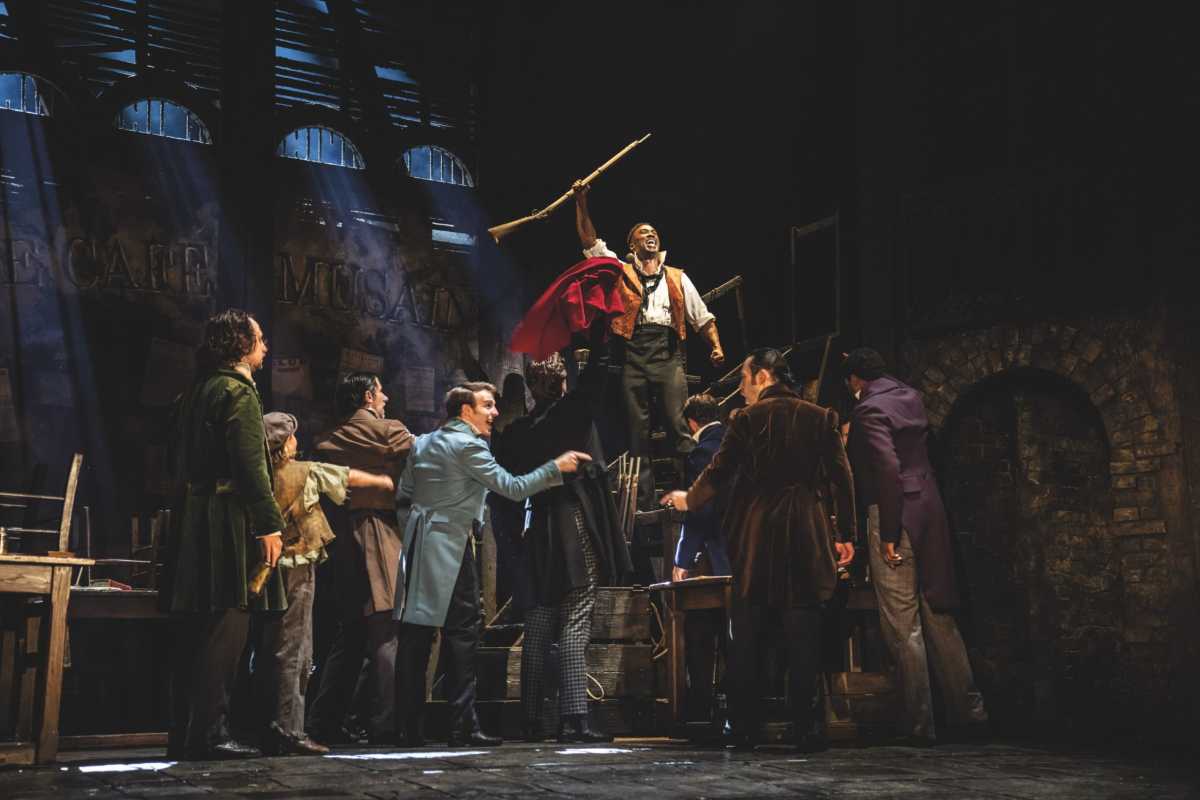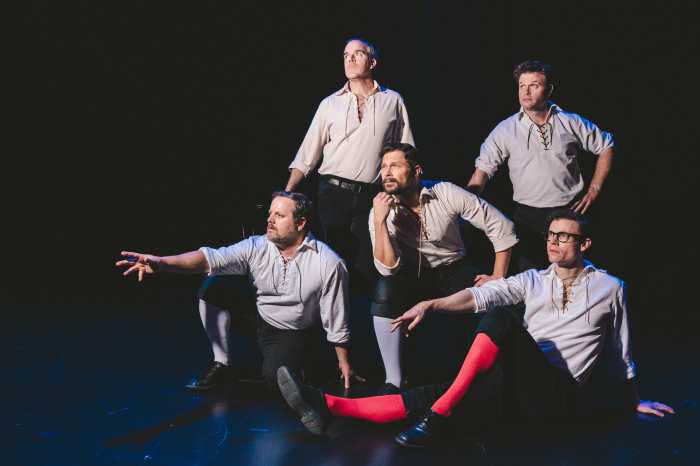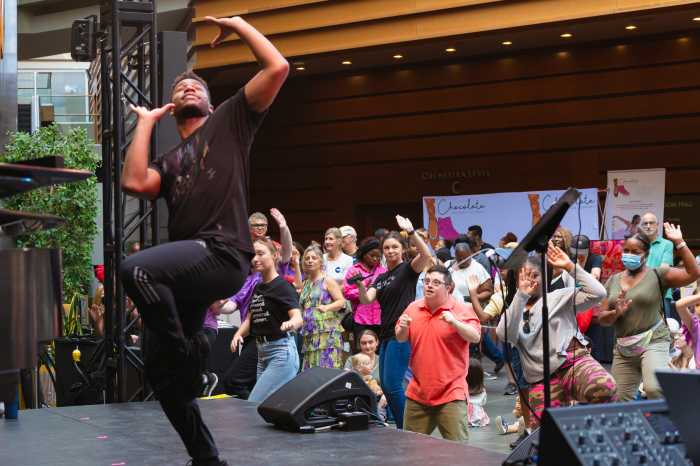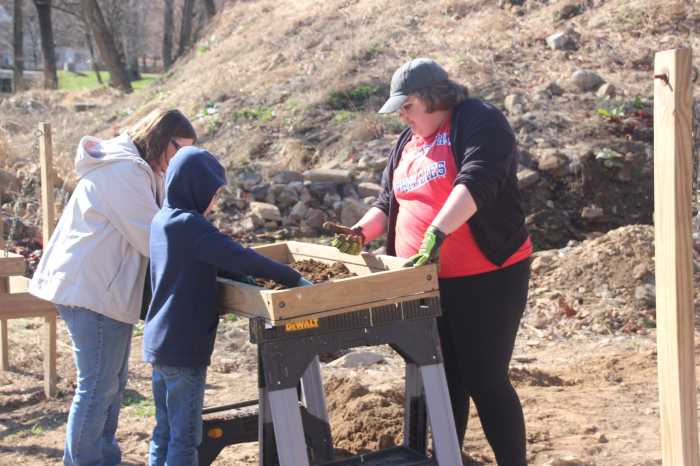Seen by over 130 million people in 53 countries and 22 languages, ‘Les Misérables’ is widely known as one of the globe’s most popular musicals. If you haven’t seen the show (or the movie, comic, TV or plenty of other adaptations), you likely know characters from the classic tale, or perhaps music from the hyper-famous score.
Now, Philadelphia is the next stop on the national tour of Cameron Mackintosh’s acclaimed production of Alain Boublil and Claude-Michel Schönberg’s Tony Award-winning musical phenomenon. Stepping into the role of Thénardier is Matt Crowle, and as a self-proclaimed “song and dance man from Chicago,” the actor opted to put a fresh spin on the classic personality of the show. And it’s just what this particular production needed.
To delve more into ‘Les Misérables’, Crowle sat down with Metro to dive a little deeper into the plot, his character and what audiences will likely take away from this timeless tale—and it might resonate more than you think.
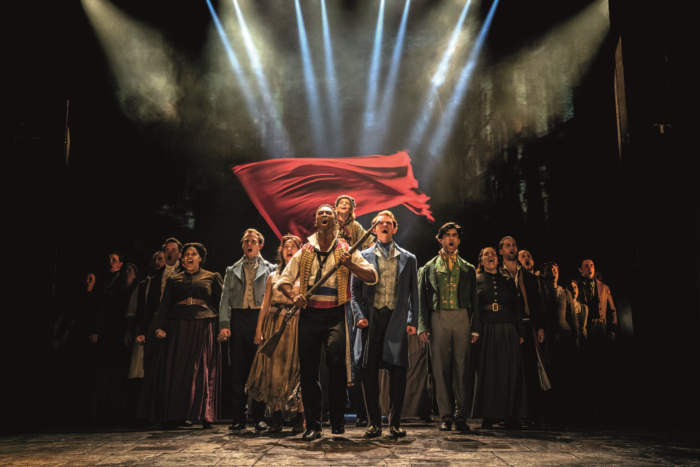
How did you first get involved with the show? Were you a fan?
I think for anyone who gets involved in a career in musical theater, at some point, ‘Les Mis’ is on their radar. [But] I never really thought I would be involved because I’m not really the singer that is sort of associated with the show, you know? I saw it when I was 15, and I remember really loving it and just how big it was and how beautiful it sounded. But, you know, I was sort of on the path to being a song and dance man from a very early age, so in that regard, it really wasn’t on my radar.
When the audition came up, my agent told me, and at that point, we were just coming out of the pandemic and almost all auditions were tape submissions… And I was going through this thing where I was having major audition anxiety in ways that I hadn’t in many, many years. So I took the audition mostly because I needed to kind of get past that anxiety. I took it very seriously, even though I thought I did not have a chance at booking this. I didn’t have any preconceived notions of the role because it was not something I was as familiar with as most people were— I think they liked that. I think they liked that I came at it with more of a vaudevillian approach to it and they wanted to buy what I was selling. I was shocked.
That must be fun to get to put your own spin on such a well-known character?
It’s a tricky line to walk when it’s such a familiar piece and people come expecting something very specific. So, there’s a lot of finding and collaborating on this particular Thénardier because you need to hit those notes. Musically, but also emotionally, and character-wise there are certain points you’ve gotta hit. But at the same time, what’s fun about this role and doing it is that it’s being presented to an audience with just a slightly new take on it. I was so thrilled that they wanted to collaborate on that because, you know, it’s such a successful show and it’s such a familiar character—and they said, we wanna see what we can find that’s fresh. It felt very much like creating a new character out of something that’s been around for almost 40 years.
So what can you tell me about Thénardier, how would you describe him?
He’s classified sort of as a villain in the show—but I don’t consider him the villain. He’s very similar in a lot of ways to Jean Valjean in that they’re both survivors, they’re both incredibly focused, they’re very resourceful, and they’re very strong characters. But, you know, the thing that divides them is that Thénardier is not encumbered by this moral compass. He doesn’t have a conscience, which actually makes surviving a lot easier in a story like this because you’re not stopping to ask yourself if it’s the right thing to do. It’s really more about, well, will I survive? Then that’s what I’m going to do.
What I try to do with him is not be the sort of shifty-eyed hand wringing stereotypical villain. I think it’s more that, I’m leaning into his resourcefulness and his sense of humor to humanize him so that every so often the audience might say, oh, I get it. Then they are sort of a little ashamed to have said they got it, you know? I’m trying to be sneakier that way in that oh, he’s so fun, he’s so likable—then, oh my God, he’s a monster.
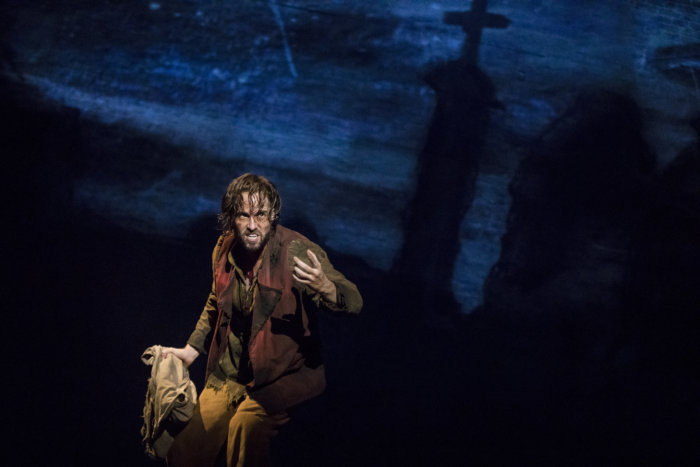
‘Master of the House’ seems to be one of the most energetic songs to perform in the show, is it as fun as it looks?
How I was able to hook into this for the audition and subsequently for the rehearsals and performances is that for years now, I’ve been a song and dance man in Chicago. What comes with that territory often is patter songs—clever twists of phrases and plays on words. So I realized as I was preparing for the audition oh, it’s a patter song, that’s what this is. It’s a lot of lifts and just fun wordplay. So when I’m singing this song that’s incredibly famous, what I wanted to do was find the playfulness of it and almost that he’s entertaining himself as he’s coming up with the evening’s entertainment for the patrons of the Inn.
That to me is the joy of this character. We’ve been listening to so many beautiful songs and ballads and getting lost in this sweeping landscape of music. So when this clown pops up, it almost gives the audience aural whiplash. That’s really fun. We’ve created this landscape of beauty and thoughtfulness—and then he comes in like a wrecking ball.
What else stands out to you from the show?
What was always so striking to me is how trenchant and present and current this writing is—almost like a direct and immediate commentary on what’s going on right now today [in the world.] These scenes and this writing is so very relatable on a very personal, specific level. [Some of] these other scenes really kind of affect me and I think will affect the audiences. There are times when you think, my God, that lyric was written just for me. There aren’t many shows that do that time and time again—especially a three-hour musical about the French Revolution. You wouldn’t think, oh, I can relate so much to that…but it’s so personal and it’s so specific.
Overall, what do you hope people take away from this tour of Les Misérables?
I think this show really serves beautifully as a mirror—a cultural or character mirror for the audience to really accept the fact that nothing is cut and dry. There’s a complexity to every difficult issue or choice. Without beating that across the heads of every audience member, it’s just, written in such a way that is accessible and surprising all these years later. There’s an emotional response that it elicits from everybody in very different ways.
You really can take a lot of different morals from this. But most importantly, I think is the fact that you never know what’s going on with everybody, and to think that things are just so simple is just not the way the world works. I think what is so brilliant about this writing and these characters is this story of the human spirit and resilience and survival—whatever that means to each person.
Catch Les Misérables at the Kimmel Cultural Campus’ Academy of Music November 2-13. Tickets can be purchased by calling 215-893-1999 or online at kimmelculturalcampus.org



